Reviewed and updated for accuracy on 06/21/23
Have you ever found yourself waking up with a sore jaw or experiencing unexplained headaches? You may be among the millions of people who clench their teeth, a condition known as bruxism. Teeth clenching, whether it occurs during the day or while you sleep, can have a significant impact on your oral health and overall well-being.
But why do we do it? In this article, we’ll unravel the mystery behind teeth clenching, exploring its causes, risk factors, and potential complications.
Definition and Symptoms of Teeth Clenching
Before delving into the causes of teeth clenching, let’s first understand what it entails. Teeth clenching, also known as bruxism, refers to the involuntary grinding, gnashing, or clenching of teeth. While it commonly occurs during sleep, known as sleep bruxism, some individuals also experience daytime clenching.
Identifying the symptoms of teeth clenching is crucial for recognizing the condition. These symptoms may include waking up with jaw pain, headaches, or even tooth sensitivity. Furthermore, teeth clenching can result in worn-down tooth surfaces, jaw muscle soreness, and even disruptions in sleep quality. By recognizing the signs of teeth clenching, you can take proactive steps towards finding relief and preventing potential complications.

-
Product on sale
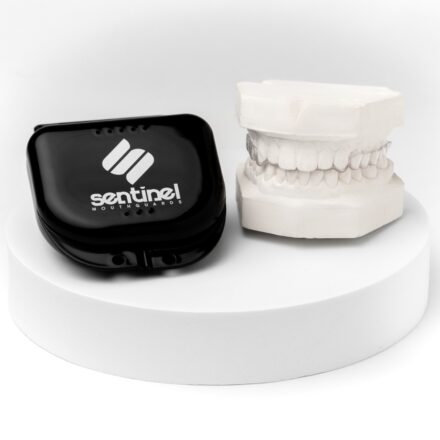 No-Show Day Mouth GuardOriginal price was: $149.00.$129.00Current price is: $129.00.
No-Show Day Mouth GuardOriginal price was: $149.00.$129.00Current price is: $129.00. -
Product on sale
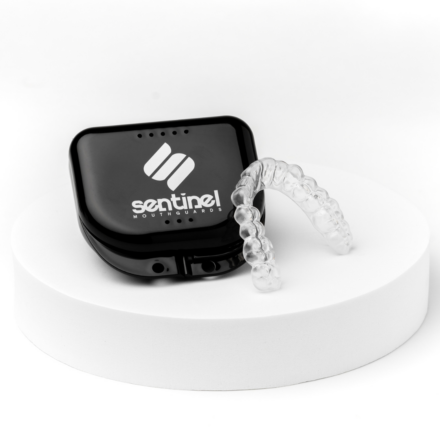 Durability Mouth Guard for Heavy Teeth GrindingOriginal price was: $215.00.$189.00Current price is: $189.00.
Durability Mouth Guard for Heavy Teeth GrindingOriginal price was: $215.00.$189.00Current price is: $189.00. -
Product on sale
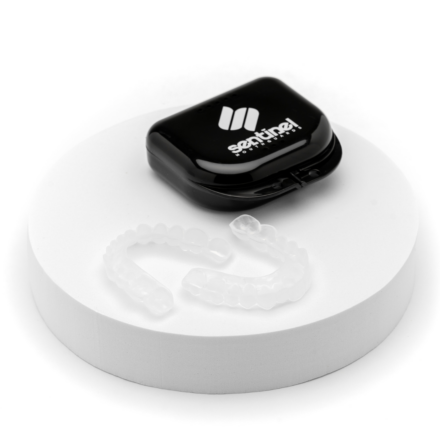 Tongue and Cheek Biting Relief Mouth GuardsOriginal price was: $189.00.$169.00Current price is: $169.00.
Tongue and Cheek Biting Relief Mouth GuardsOriginal price was: $189.00.$169.00Current price is: $169.00. -
Product on sale
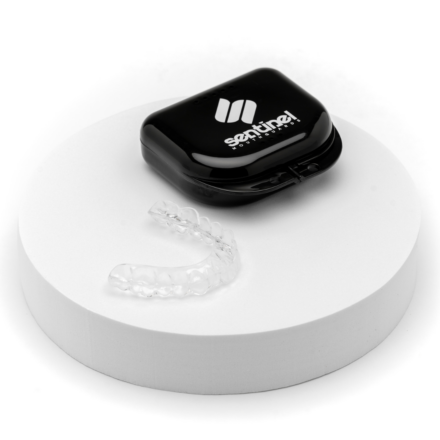 Custom Hard Night GuardOriginal price was: $169.00.$149.00Current price is: $149.00.
Custom Hard Night GuardOriginal price was: $169.00.$149.00Current price is: $149.00. -
Product on sale
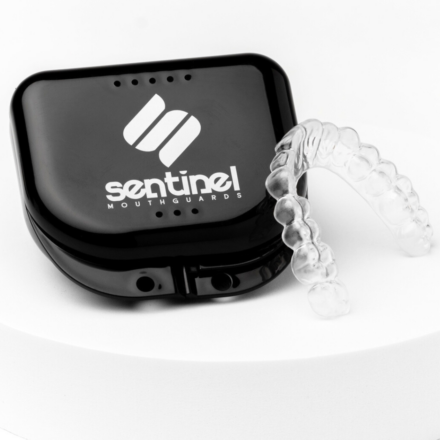 Custom Soft Night GuardOriginal price was: $149.00.$129.00Current price is: $129.00.
Custom Soft Night GuardOriginal price was: $149.00.$129.00Current price is: $129.00. -
Product on sale
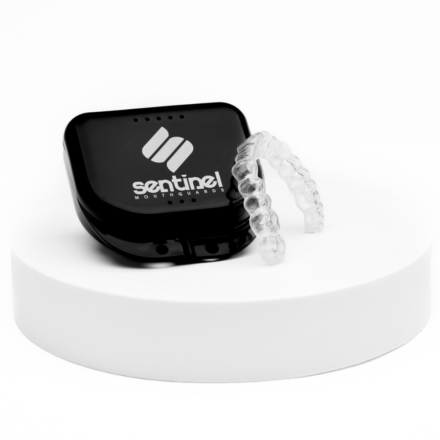 Custom Dual Laminated Night GuardOriginal price was: $169.00.$149.00Current price is: $149.00.
Custom Dual Laminated Night GuardOriginal price was: $169.00.$149.00Current price is: $149.00.
Causes of Teeth Clenching
Teeth clenching can have various underlying causes, and understanding them is key to addressing the issue effectively. One of the primary contributors to teeth clenching is stress and anxiety. The pressures of daily life, work, or personal problems can manifest in the form of bruxism.
Additionally, sleep disorders, such as sleep apnea, have been closely associated with teeth clenching. The interrupted breathing patterns and oxygen deprivation during sleep can trigger bruxism episodes. Dental factors also play a role, with malocclusion (misaligned teeth) being a common factor. When the teeth do not align properly, the jaw muscles may overcompensate, leading to clenching.
Furthermore, missing teeth or dental restorations can disrupt the natural bite, potentially causing bruxism. Lastly, certain lifestyle habits like excessive consumption of caffeine or alcohol, and smoking have been linked to teeth clenching. By identifying these potential causes, individuals can take targeted measures to address the root issues and find relief from teeth clenching.
Risk Factors and Complications
Teeth clenching, if left unaddressed, can pose several risks and complications. Demographic factors such as age and gender can influence the prevalence of teeth clenching, with studies suggesting higher rates among younger individuals and women.
The impact of teeth clenching on dental health is significant, as persistent clenching can lead to tooth damage and wear, potentially resulting in fractures, chipping, or even tooth loss. Moreover, teeth clenching is often associated with temporomandibular joint (TMJ) disorders, causing pain and dysfunction in the jaw joint.
Beyond oral health, teeth clenching can have effects on overall well-being. Chronic headaches, facial pain, and muscle tension are common complaints among bruxism sufferers. Additionally, the disrupted sleep patterns caused by teeth clenching can lead to fatigue, daytime drowsiness, and even contribute to sleep disturbances for the individual and their sleep partner. Understanding these risks and complications emphasizes the importance of addressing teeth clenching promptly.
Diagnosis and Treatment Options
Diagnosing and treating teeth clenching requires a comprehensive approach that takes into account the individual’s symptoms and specific circumstances. Recognizing the signs of teeth clenching, such as jaw pain, headaches, or tooth sensitivity, is the first step towards seeking professional help. Dental evaluation by a qualified dentist or oral health specialist is crucial in determining the extent of teeth clenching and identifying any underlying dental factors.
Behavioral and self-help strategies can play a significant role in managing teeth clenching. Stress management techniques, relaxation exercises, and therapy can help individuals reduce anxiety and promote relaxation, potentially alleviating clenching episodes. Dental interventions, such as oral appliances or mouthguards, can be prescribed to protect the teeth from damage during clenching.
Additionally, addressing any dental misalignments or missing teeth through dental corrections or restorations can help restore proper bite alignment and reduce clenching. In some cases, medical interventions may be necessary, including medications that promote muscle relaxation or treatments for underlying sleep disorders. By combining these approaches, individuals can find relief from teeth clenching and improve their oral health and overall well-being
Prevention and Lifestyle Changes
Prevention and lifestyle changes are essential in managing and reducing the occurrence of teeth clenching. Stress reduction techniques, such as practicing mindfulness, engaging in regular exercise, or seeking therapy, can help individuals better cope with stress and anxiety, which are common triggers for teeth clenching.
Adopting healthy sleep practices, such as maintaining a consistent sleep schedule, creating a relaxing bedtime routine, and ensuring a comfortable sleep environment, can promote better sleep quality and reduce the likelihood of sleep-related bruxism.
Limiting the intake of stimulants like caffeine and alcohol can also have a positive impact on teeth clenching. Moreover, quitting smoking not only benefits overall health but also reduces the risk of clenching. Regular dental check-ups and maintaining a good oral care routine, including brushing twice a day and flossing, are essential for overall oral health and can help identify and address any dental factors contributing to teeth clenching. By making these preventive measures and lifestyle changes, individuals can actively manage and potentially prevent teeth clenching episodes.
How can I stop clenching my teeth at night?
To stop clenching your teeth at night, here are some strategies that may help:
- Stress reduction techniques: Since stress and anxiety are common triggers for teeth clenching, finding ways to manage stress can be beneficial. Engage in relaxation exercises such as deep breathing, meditation, or yoga before bedtime to promote relaxation and reduce tension.
- Create a bedtime routine: Establish a calming routine before sleep to signal your body that it’s time to unwind. Avoid stimulating activities or screens close to bedtime. Instead, engage in relaxing activities such as reading a book, taking a warm bath, or listening to soothing music.
- Maintain a comfortable sleep environment: Ensure that your sleep environment is conducive to relaxation. Use a supportive pillow and mattress to promote proper head and neck alignment. Keep the room cool, dark, and quiet for optimal sleep quality.
- Avoid stimulating substances: Limit your consumption of caffeine and alcohol, especially in the evening, as they can contribute to teeth clenching. These substances can interfere with sleep quality and exacerbate clenching episodes.
- Jaw and muscle relaxation exercises: Practicing jaw and muscle relaxation techniques can help release tension in the jaw. Apply a warm compress to the jaw area before bedtime or gently massage the jaw muscles to alleviate muscle tension.
- Wear a mouthguard: Wear a custom-fitted mouthguard or splint. These oral appliances can provide a physical barrier between the upper and lower teeth, preventing them from grinding against each other during sleep.
- Seek professional help: If teeth clenching persists despite self-help strategies, consult with a dentist or healthcare professional. They can evaluate your specific case, identify underlying causes, and recommend appropriate treatment options such as dental corrections, medications, or therapy.
What are the signs and symptoms of teeth clenching?
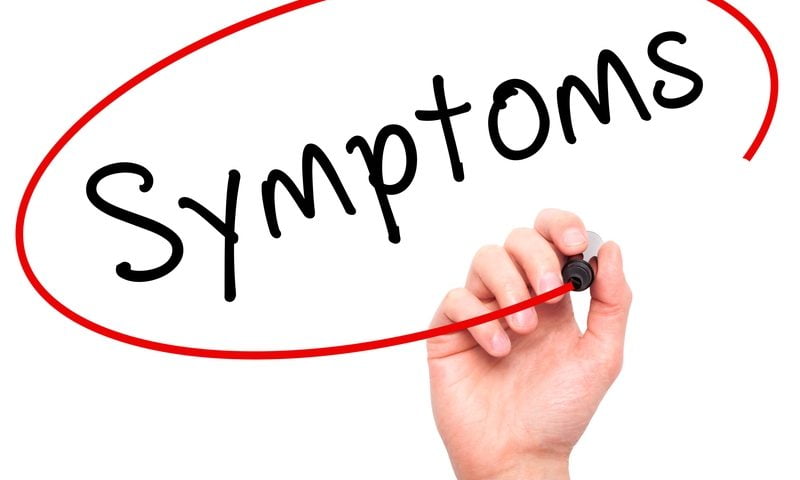
Teeth clenching, also known as bruxism, can manifest through various signs and symptoms. Here are some common indicators that you may be experiencing teeth clenching:
- Jaw pain and facial discomfort: Persistent or recurring jaw pain, facial tenderness, or soreness can be a sign of teeth clenching. The muscles surrounding the jaw joint (temporomandibular joint) may become strained due to the excessive pressure applied during clenching.
- Headaches: Waking up with frequent headaches, particularly in the temples or the sides of the head, can be a symptom of teeth clenching. The muscle tension and strain caused by clenching can trigger tension-type headaches.
- Tooth sensitivity: Clenching can lead to enamel wear, exposing the sensitive underlying layers of the teeth. If you experience increased tooth sensitivity, especially to hot or cold temperatures, it could be a sign of teeth clenching.
- Worn-down tooth surfaces: Over time, the excessive grinding or clenching of the teeth can wear down the tooth enamel. Dentists may notice flattened, chipped, or fractured tooth surfaces during routine dental examinations, indicating bruxism.
- Fatigue and disrupted sleep: Teeth clenching can disrupt sleep patterns, leading to fatigue and daytime drowsiness. You may wake up feeling unrefreshed despite a full night’s sleep due to the constant muscle activity and associated disturbances.
- Jaw muscle hypertrophy: Prolonged clenching can cause the jaw muscles to become larger and more pronounced. This can result in a visibly enlarged jawline or muscle bulging in the temple area.
- Earache or ear pain: The proximity of the temporomandibular joint (TMJ) to the ear can cause referred pain. Teeth clenching may lead to discomfort or pain in the ears, which can sometimes be mistaken for an ear infection.
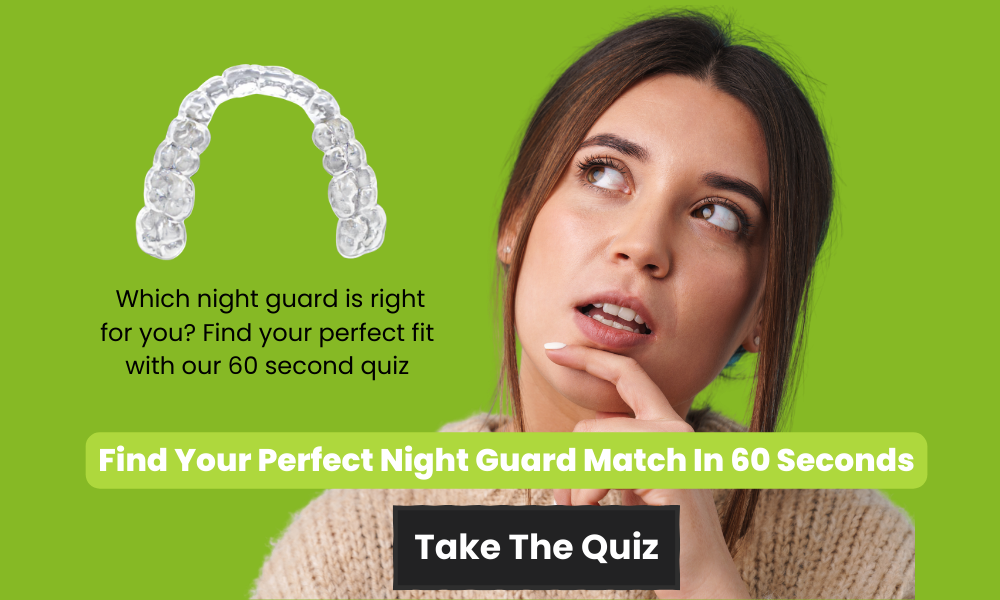
Can stress and anxiety cause teeth clenching?
Yes, stress and anxiety are commonly recognized as significant contributing factors to teeth clenching or bruxism. The relationship between stress/anxiety and teeth clenching is well-established. Here’s how stress and anxiety can cause teeth clenching:
- Increased muscle tension: Stress and anxiety can lead to increased muscle tension throughout the body, including the jaw muscles. When you are under stress, the body’s natural response is to tighten muscles as a protective mechanism. This can manifest as clenching or grinding of the teeth, especially during sleep.
- Activation of the “fight-or-flight” response: Stress and anxiety trigger the body’s stress response, also known as the “fight-or-flight” response. This physiological response can lead to increased arousal, elevated heart rate, and muscle activation. In some individuals, this can translate into teeth clenching or grinding.
- Sleep disturbances: Stress and anxiety can disrupt sleep patterns and lead to restless nights. Sleep disturbances, such as fragmented sleep or difficulty falling asleep, have been associated with an increased likelihood of teeth clenching during sleep.
- Coping mechanism: For some individuals, clenching or grinding their teeth becomes a subconscious coping mechanism to alleviate stress or tension. It may provide a temporary sense of relief or a way to release built-up anxiety.
Is teeth clenching related to TMJ disorders?
Yes, teeth clenching is closely associated with temporomandibular joint (TMJ) disorders. The temporomandibular joints connect the jawbone to the skull, allowing for the movements necessary for activities such as chewing and talking. Here’s how teeth clenching and TMJ disorders are related:
- Excessive strain on the TMJ: Persistent clenching or grinding of the teeth places excessive strain on the temporomandibular joint. The repeated and forceful contractions of the jaw muscles can contribute to the development or exacerbation of TMJ disorders.
- Muscle tension and joint inflammation: Teeth clenching can cause increased muscle tension in the jaw and surrounding areas. The sustained contraction of these muscles can lead to inflammation and irritation of the TMJ, resulting in TMJ disorders. This inflammation can manifest as pain, clicking or popping sounds, and limited jaw movement.
- Malocclusion and bite problems: Teeth clenching can sometimes be associated with malocclusion, which refers to misalignment or improper positioning of the teeth when the jaws are closed. Malocclusion can put additional stress on the TMJ, leading to TMJ disorders. Conversely, existing TMJ disorders can also contribute to an abnormal bite, which may exacerbate teeth clenching.
- Co-occurrence of symptoms: Many individuals with teeth clenching also experience symptoms commonly associated with TMJ disorders, such as jaw pain, clicking or popping sounds, limited jaw movement, and muscle tenderness in the face and neck. These overlapping symptoms suggest a close relationship between teeth clenching and TMJ disorders.
It’s important to note that while teeth clenching can contribute to TMJ disorders, not all individuals with teeth clenching will develop TMJ issues, and vice versa. It is advisable to consult with a dentist or healthcare professional for an accurate diagnosis and appropriate treatment if you suspect teeth clenching or TMJ-related concerns. They can provide a comprehensive evaluation and recommend specific therapies or interventions to address both the teeth clenching and TMJ disorder, if present.
Are there any natural remedies to prevent teeth clenching?
While addressing the underlying causes of teeth clenching is essential, there are several natural remedies and self-help techniques that may help in preventing teeth clenching or reducing its frequency. Here are some natural remedies to consider:
- Stress management techniques: Since stress and anxiety are common triggers for teeth clenching, practicing stress management techniques can be beneficial. Engage in activities such as deep breathing exercises, meditation, yoga, or mindfulness to promote relaxation and reduce overall stress levels.
- Jaw relaxation exercises: Perform gentle jaw relaxation exercises to relieve tension in the jaw muscles. One technique involves placing the tip of your tongue on the roof of your mouth and allowing your teeth to come apart. This helps relax the jaw and promotes a more relaxed position.
- Warm compress: Applying a warm compress or using a heating pad on the jaw area before bedtime can help relax the jaw muscles and reduce clenching during sleep. Ensure that the compress is not too hot to avoid burns.
- Avoid stimulating substances: Limit your intake of caffeine and alcohol, as these substances can contribute to teeth clenching. Both caffeine and alcohol can interfere with sleep quality and increase muscle tension, potentially exacerbating clenching episodes.
- Good sleep hygiene: Maintain a consistent sleep schedule and practice good sleep hygiene habits. Establish a relaxing bedtime routine, create a comfortable sleep environment, and aim for 7-8 hours of quality sleep each night. Sufficient, restful sleep can help reduce stress and promote overall relaxation.
- Herbal remedies: Some herbal remedies, such as chamomile tea or valerian root, are known for their calming properties. While scientific evidence supporting their effectiveness specifically for teeth clenching is limited, they may contribute to overall relaxation and improve sleep quality.
- Awareness and behavior modification: Increase your awareness of teeth clenching episodes during the day. Whenever you catch yourself clenching, consciously relax your jaw and position your tongue at the roof of your mouth. Over time, this awareness and behavior modification can help break the habit of clenching.
While these natural remedies may provide relief for some individuals, it’s important to note that they may not work for everyone. Consulting with a dentist or healthcare professional is advisable, as they can provide personalized guidance, evaluate your specific case, and recommend appropriate treatment options based on your needs.
Can teeth misalignment lead to teeth clenching?
Yes, teeth misalignment, also known as malocclusion, can contribute to teeth clenching or bruxism. Here’s how teeth misalignment can lead to teeth clenching:
- Uneven bite distribution: When the teeth are misaligned, they may not fit together properly when the jaws are closed. This can result in an uneven distribution of the biting forces across the teeth. As a compensatory mechanism, the jaw muscles may engage in clenching or grinding motions to try and achieve a more comfortable or stable bite position.
- Occlusal interferences: Malocclusion can create occlusal interferences, which are areas where the teeth make premature contacts or do not come together harmoniously during biting or chewing. These interferences can cause excessive pressure and strain on certain teeth or specific areas of the jaw. The body may respond to these interferences by clenching or grinding the teeth, attempting to find a more balanced or comfortable occlusal relationship.
- Bite instability and muscle tension: When the bite is unstable due to misaligned teeth, it can lead to muscle tension in the jaw. The muscles surrounding the jaw joint may become overactive in an attempt to compensate for the misalignment, resulting in clenching or grinding.
It’s important to note that not all cases of teeth misalignment will result in teeth clenching, and the relationship between the two can vary from person to person. Additionally, teeth clenching can have multiple causes, including stress, anxiety, and other factors. However, if you have teeth misalignment and are experiencing teeth clenching, addressing the underlying misalignment through orthodontic treatment or dental corrections may help alleviate or reduce the clenching episodes.
If you suspect that teeth misalignment is contributing to your teeth clenching, it is advisable to consult with a dentist or orthodontist. They can evaluate your specific case, determine the impact of malocclusion, and recommend appropriate treatment options to correct the misalignment and potentially reduce teeth clenching.
Does teeth clenching affect dental health?
Yes, teeth clenching can have significant effects on dental health. Here are some ways in which teeth clenching can impact oral health:
- Tooth wear and damage: The excessive force generated during teeth clenching can cause significant wear and damage to the tooth surfaces over time. The constant grinding or clenching can result in flattened, chipped, fractured, or worn-down teeth. This can lead to tooth sensitivity, changes in bite alignment, and increased susceptibility to decay or cavities.
- Temporomandibular joint (TMJ) disorders: Teeth clenching can contribute to the development or exacerbation of TMJ disorders. The sustained muscle tension and strain from clenching can lead to inflammation, pain, and dysfunction in the temporomandibular joints. TMJ disorders can cause symptoms such as jaw pain, clicking or popping sounds, limited jaw movement, and headaches.
- Gum recession and periodontal issues: The excessive pressure and force exerted during clenching can impact the gum tissues. Over time, clenching can contribute to gum recession, exposing the tooth roots and increasing the risk of periodontal (gum) disease. Gum recession can lead to tooth sensitivity, root decay, and compromised support for the teeth.
- Jaw muscle discomfort and fatigue: Constant clenching of the jaw muscles can lead to muscle discomfort, fatigue, and soreness in the face, jaw, and neck. These symptoms can affect daily activities such as eating, speaking, and yawning, and can impact overall quality of life.
- Dental restorations and prosthetics: Teeth clenching can put excessive stress on dental restorations such as fillings, crowns, bridges, or dentures. The continuous grinding or clenching forces can cause damage or fractures to these dental prosthetics, necessitating repair or replacement.
- Headaches and facial pain: The strain and tension resulting from teeth clenching can contribute to frequent headaches, migraines, and facial pain. The jaw muscles and associated structures can become overworked and fatigued, leading to discomfort in the head and face.
- Sleep disturbances: Teeth clenching often occurs during sleep and can disrupt sleep patterns. The clenching motions and associated muscle activity can lead to sleep disturbances, causing fragmented sleep, daytime drowsiness, and reduced overall sleep quality.
What are the long-term complications of teeth clenching?
Teeth clenching, if left untreated over the long term, can lead to various complications and consequences for oral health. Here are some potential long-term complications associated with teeth clenching:
- Severe tooth wear and damage: Prolonged and untreated teeth clenching can result in significant tooth wear and damage. The constant grinding and clenching motions can wear down the enamel, leading to flattened, chipped, fractured, or even broken teeth. This can require extensive dental treatment such as dental crowns, bridges, or even tooth extraction in severe cases.
- Temporomandibular joint (TMJ) disorders: Chronic teeth clenching can contribute to the development or exacerbation of TMJ disorders. The excessive strain on the temporomandibular joints and associated muscles can lead to inflammation, pain, limited jaw movement, and clicking or popping sounds. TMJ disorders can significantly impact jaw function, causing discomfort and difficulty with eating, speaking, and other oral movements.
- Chronic facial and jaw pain: Long-term teeth clenching can result in chronic facial and jaw pain. The constant muscle tension and strain can cause persistent discomfort in the jaw, face, and neck. This can interfere with daily activities and overall quality of life.
- Gum recession and periodontal issues: The excessive pressure exerted during clenching can contribute to gum recession, where the gums gradually pull away from the teeth. Gum recession can expose the tooth roots, making them more susceptible to decay and increasing the risk of gum disease (periodontal disease). Untreated gum disease can lead to tooth loss and potential systemic health complications.
- Compromised dental restorations: Teeth clenching can place excessive stress on dental restorations such as fillings, crowns, bridges, or implants. Over time, this can lead to damage, fractures, or dislodgement of these dental prosthetics, requiring repairs or replacement.
- Chronic headaches and migraines: Teeth clenching is a known trigger for headaches and migraines. Persistent clenching can contribute to the development of chronic headache patterns and frequent migraines, impacting daily life and overall well-being.
- Sleep disorders: Teeth clenching often occurs during sleep and can disrupt sleep patterns. The associated muscle activity and strain can lead to sleep disturbances, including snoring, sleep apnea, and fragmented sleep. Sleep disorders can have negative impacts on overall health and quality of life.
Conclusion
In conclusion, teeth clenching, or bruxism, is a common condition that can have significant impacts on oral health. Whether it occurs during the day or while asleep, teeth clenching can lead to various complications and consequences if left untreated. The causes of teeth clenching are multifactorial, including factors such as stress, anxiety, teeth misalignment, and underlying dental issues. Understanding why teeth clenching occurs is crucial in addressing the condition effectively.
The effects of teeth clenching on dental health can be substantial. From tooth wear and damage to temporomandibular joint disorders, gum recession, and compromised dental restorations, the consequences can be far-reaching. Additionally, chronic facial pain, headaches, sleep disturbances, and other related issues can significantly impact quality of life.
Recognizing the signs and symptoms of teeth clenching is essential for early detection and intervention. Seeking professional help from a dentist or healthcare provider is recommended for accurate diagnosis and personalized treatment options. Various approaches can be employed, including stress management techniques, jaw relaxation exercises, dental interventions, and the use of nightguards or splints to protect the teeth during sleep.
By addressing the underlying causes and employing appropriate interventions, it is possible to manage teeth clenching effectively and mitigate its impact on oral health. Early intervention can prevent further complications, preserve dental structures, alleviate pain and discomfort, and improve overall well-being.
If you are experiencing teeth clenching, don’t hesitate to reach out to a dental professional. With their expertise and guidance, you can take the necessary steps towards addressing this condition and preserving your oral health for the long term. Remember, a healthy smile starts with understanding and addressing teeth clenching effectively.
Would you like to learn more about Sentinel Mouthguards products and services?
Visit our help center today!

